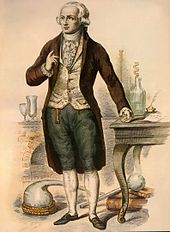- LadyinRetirement wrote:
- I'm no expert, Dirk, but Wikipedia says it is fictional - I suppose I'd have to ask a person of Polish blood really. I tried to add the Wikipedia link but this computer has so little memory the "insert" button isn't showing.
LiR as you I started with wikipedia and from other sources, yes it seems to be a myth.
https://en.wikipedia.org/wiki/The_Trumpeter_of_KrakowBut the search for this "philosopher's stone" is not a fiction:
https://en.wikipedia.org/wiki/Philosopher%27s_stoneThe
philosopher's stone, or
stone of the philosophers (
Latin:
lapis philosophorum) is a legendary
alchemical substance capable of turning
base metals such as
mercury into
gold (
chrysopoeia, from the Greek χρυσός
khrusos, "gold", and ποιεῖν
poiēin, "to make") or silver. It is also called the
elixir of life, useful for
rejuvenation and for achieving
immortality; for many centuries, it was the most sought goal in
alchemy. The philosopher's stone was the central symbol of the mystical terminology of alchemy, symbolizing perfection at its finest,
enlightenment, and heavenly bliss. Efforts to discover the philosopher's stone were known as the
Magnum Opus ("Great Work").
[1]Yes it was still a long way to Mendeleev and his periodical table; but even there was the first step for the new "element" phosphor from distilled urine the search for the philosopher's stone...
"The first person in history to discover a new element was
Hennig Brand, a
bankrupt German merchant. Brand tried to discover the
Philosopher's Stone — a mythical object that was supposed to turn inexpensive base
metals into gold. In 1669 (or later), his experiments with
distilled human
urine resulted in the production of a glowing white substance, which he called "cold fire" (
kaltes Feuer).
[3] He kept his discovery secret until 1680, when
Robert Boyle rediscovered phosphorus and published his findings. The discovery of phosphorus helped to raise the question of what it meant for a substance to be an element."
https://en.wikipedia.org/wiki/History_of_the_periodic_table Hennig Brand[edit]
The history of the periodic table is also a history of the
discovery of the chemical elements. The first person in history to discover a new element was
Hennig Brand, a
bankrupt German merchant. Brand tried to discover the
Philosopher's Stone — a mythical object that was supposed to turn inexpensive base
metals into gold. In 1669 (or later), his experiments with
distilled human
urine resulted in the production of a glowing white substance, which he called "cold fire" (
kaltes Feuer).
[3] He kept his discovery secret until 1680, when
Robert Boyle rediscovered phosphorus and published his findings. The discovery of phosphorus helped to raise the question of what it meant for a substance to be an element.
In 1661, Boyle defined an element as "those primitive and simple Bodies of which the mixt ones are said to be composed, and into which they are ultimately resolved."
[4] Antoine-Laurent de Lavoisier[edit]
 Antoine Laurent de LavoisierLavoisier
Antoine Laurent de LavoisierLavoisier's
Traité Élémentaire de Chimie (
Elementary Treatise of Chemistry), which was written in 1789 and first translated into English by the writer
Robert Kerr, is considered to be the first modern
textbook about
chemistry. Lavoisier defined an element as a substance that cannot be broken down into a simpler substance by a chemical reaction.
[5] This simple definition served for a century and lasted until the discovery of
subatomic particles. Lavoisier's book contained a list of "simple substances" that Lavoisier believed could not be broken down further, which included
oxygen,
nitrogen,
hydrogen,
phosphorus,
mercury,
zinc and
sulfur, which formed the basis for the modern list of elements. Lavoisier's list also included '
light' and '
caloric', which at the time were believed to be material substances. He classified these substances into metals and non metals. While many leading
chemists refused to believe Lavoisier's new revelations, the
Elementary Treatise was written well enough to convince the younger generation. However, Lavoisier's descriptions of his elements lack completeness, as he only classified them as metals and non-metals.
Kind regards from Paul.
